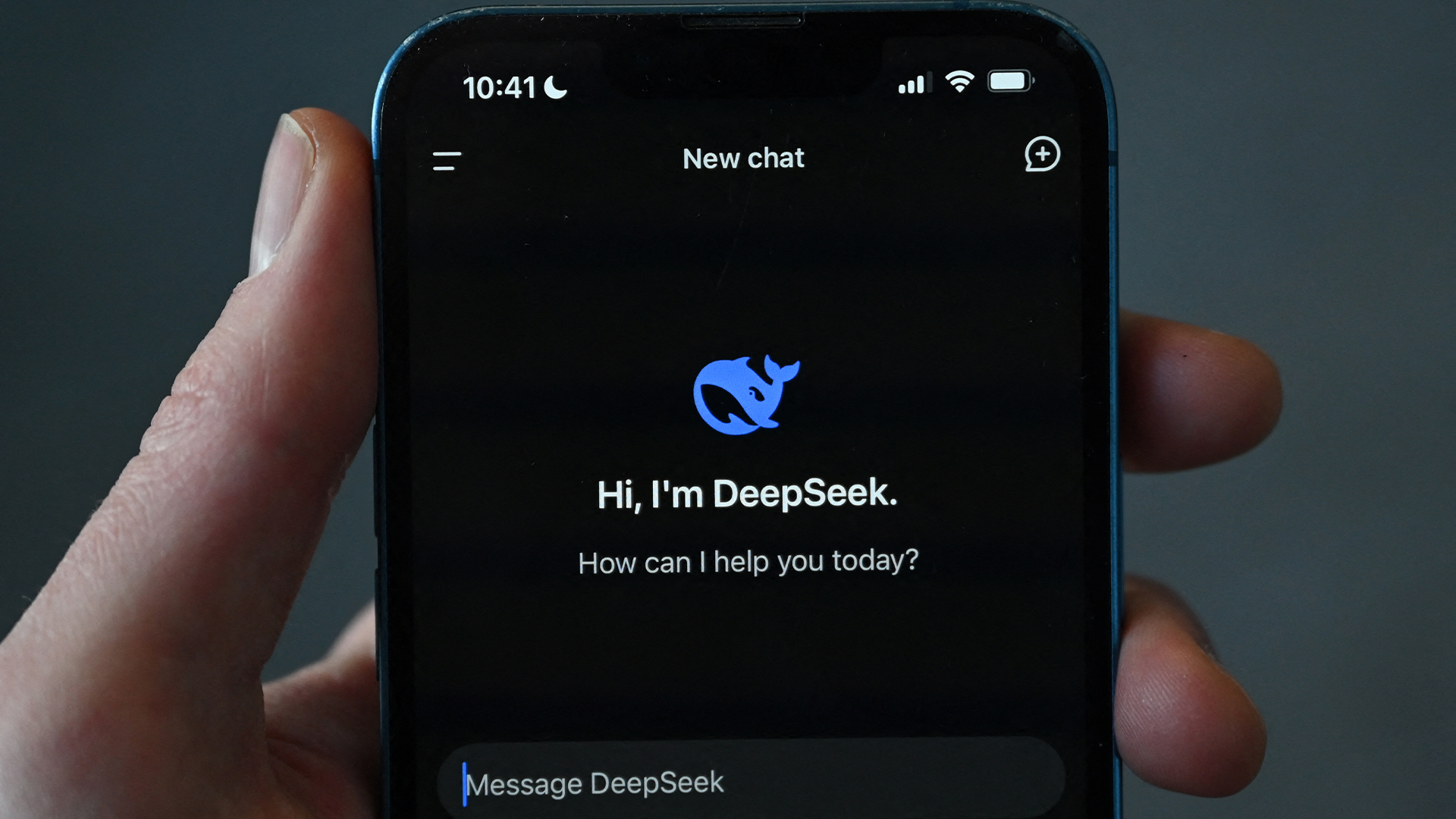"OpenAI continues to be our partner on frontier models": Microsoft is open to using a range of AI models in 365 Copilot, but OpenAI remains its go-to choice
Citing concerns over performance and cost, Microsoft will look to use a range of models to provide the best experience for Copilot 365 users


Microsoft has clarified its stance on the models that will power its 365 Copilot service after reports suggested it was considering integrating third-party alternatives to OpenAI’s model range.
Speculation around the two companies’ relationship emerged after a Reuters report last month claimed Microsoft had been “working on adding internal and third-party artificial intelligence models to power its flagship AI product Microsoft 365 Copilot.”
Sources said the decision was driven by Microsoft’s desire to diversify its current roster of models from OpenAI to minimize its reliance on the firm, largely due to concerns around cost and performance for enterprise customers.
Speaking to Reuters, a Microsoft spokesperson suggested OpenAI would remain Microsoft’s primary partner for frontier models, the most advanced models that underpin the rest of the generative AI ecosystem.
They added that Microsoft would "incorporate various models from OpenAI and Microsoft depending on the product and experience.”
ITPro approached Microsoft for clarification on how OpenAI would feature in future Copilot 365 products.
A Microsoft spokesperson reiterated the firm’s continued partnership with OpenAI on the underlying foundation models, but noted its existing agreement allows Microsoft to “go beyond” simply customizing OpenAI’s models.
Get the ITPro daily newsletter
Sign up today and you will receive a free copy of our Future Focus 2025 report - the leading guidance on AI, cybersecurity and other IT challenges as per 700+ senior executives
“OpenAI continues to be our partner on frontier models. Our agreement allows us to go beyond fine-tuning and customize OpenAI’s models and IP precisely for our own needs so we can integrate them directly into our products,” they explained.
This leaves open the possibility for models from other sources to be used in Microsoft's products, and the spokesperson noted the firm has been clear that it will look at a range of sources for its generative AI solutions.
“As we have said before, we incorporate various models from OpenAI and Microsoft depending on the product and experience.”
In an example, Microsoft said some models perform better in terms of speed and accuracy than others in specific areas, and as such it would be using a range of models in its products to achieve the best results.
“For example, recommending specific edits to a paragraph in Word may be best suited for one model whereas formatting updates could be powered just as well—and perhaps more quickly—with a different model.”
Microsoft OpenAI partnership reaches $100 billion AGI definition
Microsoft and OpenAI have maintained close ties for several years now, with the latter’s AI models now woven throughout a raft of key Microsoft product ranges.
In 2020, OpenAI licensed its GPT-3 model exclusively to Microsoft, which gave the giant the right to integrate OpenAI’s models into its products and services, including Microsoft Office, Teams, and its Azure AI tools.
In turn, Microsoft became OpenAI’s exclusive cloud provider, allowing it to leverage Microsoft’s powerful Azure cloud infrastructure to deliver OpenAI’s products and API services.
RELATED WHITEPAPER
The partnership also included collaboration on research into AI governance, ethics, and artificial general intelligence (AGI).
Microsoft launched its Azure OpenAI Service, designed to give enterprises access to OpenAI’s models as well as a raft of security and governance features in 2021.
Since its initial $1 billion investment in the generative AI pioneer, Microsoft’s total investment in OpenAI totals approximately $13 billion.

Solomon Klappholz is a former staff writer for ITPro and ChannelPro. He has experience writing about the technologies that facilitate industrial manufacturing, which led to him developing a particular interest in cybersecurity, IT regulation, industrial infrastructure applications, and machine learning.
-
 Why are many men in tech blind to the gender divide?
Why are many men in tech blind to the gender divide?In-depth From bias to better recognition, male allies in tech must challenge the status quo to advance gender equality
By Keri Allan
-
 BenQ PD3226G monitor review
BenQ PD3226G monitor reviewReviews This 32-inch monitor aims to provide the best of all possible worlds – 4K resolution, 144Hz refresh rate and pro-class color accuracy – and it mostly succeeds
By Sasha Muller
-
 OpenAI wants developers using its new GPT-4.1 models – but how do they compare to Claude and Gemini on coding tasks?
OpenAI wants developers using its new GPT-4.1 models – but how do they compare to Claude and Gemini on coding tasks?News OpenAI says its GPT-4.1 model family offers sizable improvements for coding, but tests show competitors still outperform it in key areas.
By Rory Bathgate
-
 NetSuite targets UK customer productivity gains with new AI tools
NetSuite targets UK customer productivity gains with new AI toolsNews Oracle NetSuite has announced new AI tools and features for UK customers aimed at supercharging productivity.
By Rory Bathgate
-
 ‘Frontier models are still unable to solve the majority of tasks’: AI might not replace software engineers just yet – OpenAI researchers found leading models and coding tools still lag behind humans on basic tasks
‘Frontier models are still unable to solve the majority of tasks’: AI might not replace software engineers just yet – OpenAI researchers found leading models and coding tools still lag behind humans on basic tasksNews AI might not replace software engineers just yet as new research from OpenAI reveals ongoing weaknesses in the technology.
By George Fitzmaurice
-
 ‘Awesome for the community’: DeepSeek open sourced its code repositories, and experts think it could give competitors a scare
‘Awesome for the community’: DeepSeek open sourced its code repositories, and experts think it could give competitors a scareNews Challenger AI startup DeepSeek has open-sourced some of its code repositories in a move that experts told ITPro puts the firm ahead of the competition on model transparency.
By George Fitzmaurice
-
 ‘We’re trading deep understanding for quick fixes’: Junior software developers lack coding skills because of an overreliance on AI tools – and it could spell trouble for the future of development
‘We’re trading deep understanding for quick fixes’: Junior software developers lack coding skills because of an overreliance on AI tools – and it could spell trouble for the future of developmentNews Junior software developers may lack coding skills because of an overreliance on AI tools, industry experts suggest.
By George Fitzmaurice
-
 A sign of things to come in software development? Mark Zuckerberg says AI will be doing the work of mid-level engineers this year – and he's not the only big tech exec predicting the end of the profession
A sign of things to come in software development? Mark Zuckerberg says AI will be doing the work of mid-level engineers this year – and he's not the only big tech exec predicting the end of the professionNews The Meta founder thinks 2025 will herald a profound shift in the software engineering profession
By Solomon Klappholz
-
 Shadow AI is creeping its way into software development – more than half of developers admit to using unauthorized AI tools at work, and it’s putting companies at risk
Shadow AI is creeping its way into software development – more than half of developers admit to using unauthorized AI tools at work, and it’s putting companies at riskNews Enterprises need to create smart AI usage policies that balance the benefits and risks
By Solomon Klappholz
-
 “There is no one model to rule every scenario”: GitHub will now let developers use AI models from Anthropic, Google, and OpenAI
“There is no one model to rule every scenario”: GitHub will now let developers use AI models from Anthropic, Google, and OpenAINews Devs will be given access to a broader array of AI models on GitHub – but there's more in store for users
By Emma Woollacott
